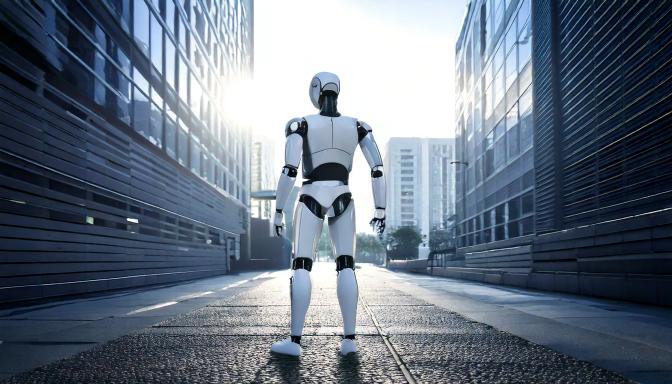After its overambitious metaverse dreams failed to take off, Meta is shifting its focus to AI-driven humanoid robots. The company is investing heavily in artificial intelligence and robotics to revolutionize human-computer interactions. Instead of virtual worlds, Meta is betting that AI-powered humanoids could redefine social engagement, business automation, and real-world applications.
This shift follows years of financial strain on its metaverse division, where low user adoption, expensive hardware, and a lack of compelling applications led to disappointing results. Now, Meta aims to redeem itself with AI-driven projects that could have real-world use cases in robotics, automation, and digital assistants.
What’s Happening & Why This Matters
Meta’s Move From Metaverse to AI Humanoids
After losing billions in metaverse investments, Meta has pivoted towards artificial intelligence and robotics. The company’s new AI humanoid project focuses on developing robots capable of human-like movement, decision-making, and adaptability.
- Meta’s AI division is leveraging deep learning, reinforcement learning, and generative AI to create lifelike robotic assistants.
- These humanoid robots could enhance digital interactions, assist with real-world tasks, and function as customer service representatives.
- Meta is competing with AI-driven robotics from Tesla, Boston Dynamics, and other major players in the automation space.
Why AI Humanoids Are Meta’s New Focus
The metaverse was an expensive failure, but AI humanoids offer tangible, real-world applications. Meta’s pivot aligns with a moving paradigm toward AI-powered automation, with multiple industries seeing potential benefits:
- Retail and customer service sectors could use AI humanoids to replace or supplement human workers.
- Healthcare applications include AI-powered assistants to help with elderly care, diagnostics, and administrative support.
- Manufacturing and logistics could integrate humanoid robots to automate repetitive tasks, increasing efficiency and reducing labor costs.
Meta’s AI Investment Strategy
Mark Zuckerberg has confirmed that Meta’s AI and robotics teams prioritize humanoid development, signaling a long-term commitment to automation and AI-driven solutions.
- Billions of dollars are being funneled into AI research, focusing on natural language processing, computer vision, and advanced robotics.
- Meta is also exploring AI-powered avatars that could bridge the gap between physical and digital interactions.
- By shifting resources from the MetaVerse to AI-driven automation, Meta aims to secure a leading role in AI-assisted robotics.
TF Summary: What’s Next
Meta’s move from the metaverse to AI-powered humanoids represents a notable modification in its technology ambitions. The company is doubling down on AI-driven solutions, hoping to redeem past failures with a more practical, high-tech vision. Whether these humanoids revolutionize human-computer interactions or remain another expensive gamble depends on how well Meta integrates AI into real-world applications.
— Text-to-Speech (TTS) provided by gspeech


